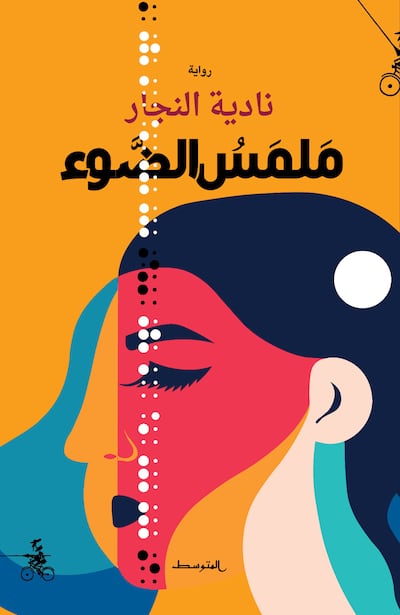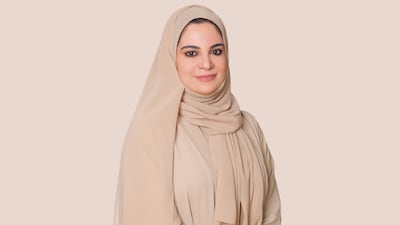Emirati writer Nadia Najar’s The Touch of Light has made the shortlist for this year's International Prize for Arabic Fiction.
The novel delves into various aspects of the region’s past, including the history of Dubai before the discovery of oil. It features a blind narrator who uses special technology to examine the content of photographs.
Najar is an acclaimed writer, having won several local prizes, including the Sharjah Book Fair Award for Best Emirati Book, the Emirates Novel Award and Al Owais Award. Her previous works include The Exile of Memory (2014), Cities of Passion (2015) and The D Trilogy (2017). She also published a short story collection in 2022 titled Puzzle Game.

Najar is in the running for the Ipaf award alongside authors from Egypt, Iraq, Lebanon, Syria and, for the first time, Mauritania. The shortlisted works were revealed on Wednesday during a press conference at the Bibliotheca Alexandrina, Egypt. The winner of the $50,000 prize will be announced on April 24 in Abu Dhabi.
“This year’s six shortlisted novels are notable for their focus on the humanity of their protagonists,” Mona Baker, chair of the 2025 judges, says.
In Danshmand, Mauritanian novelist Ahmed Fal Al Din reimagines the life of Abu Hamid Al-Ghazali. The novel portrays the famous 12th-century imam and scholar in an unprecedented relatable light, showing him tackling anxieties and conspiracies in the face of the looming threat of Frankish Crusaders.
With The Valley of the Butterflies, Iraqi writer Azher Jirjees examines developments in Baghdad over the past two decades with a novel that straddles the divide between fantasy and reality, tragedy and comedy.
The Andalusian Messiah by Syrian-Palestinian author Taissier Khalaf highlights one of the most brutal moments in Andalusian history, when Muslims were forcibly converted and interrogated by the Inquisition.

The Prayer of Anxiety by Egyptian writer Mohamed Samir Nada, meanwhile, is set in 1977 in an isolated Egyptian village where residents believe they are surrounded by a minefield. The residents don’t know much about the wider world except that a war with Israel has been raging for a decade and that their village may be the first line of defence keeping the enemy from entering Egypt.
Finally, The Women’s Charter by Lebanese writer Haneen Al-Sayegh explores the rural life in her Druze village in Mount Lebanon. It tells the story of a woman who, while trying to overcome the religious beliefs of her family, agrees to marry a wealthy Druze man so that she will be able to study at the American University in Beirut.
While the subject matter played a part in the judges’ selections, it was not the only concern, Baker says. “The novel is first and foremost an artistic construction, and narrative representation and its forms are the novelist’s means of creating worlds that can only be achieved through imagination.”


